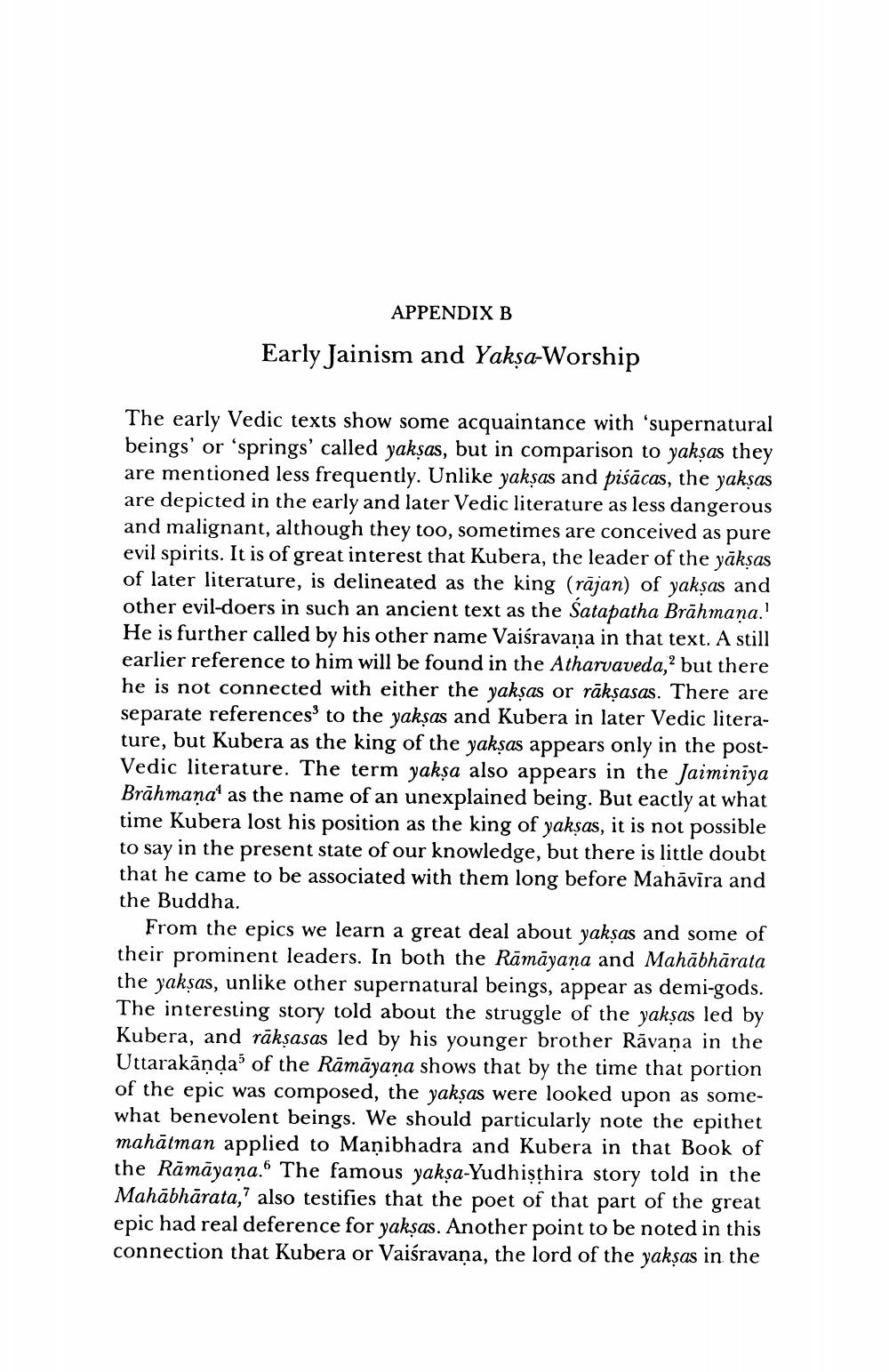________________
APPENDIX B
Early Jainism and Yakṣa-Worship
The early Vedic texts show some acquaintance with 'supernatural beings' or 'springs' called yakṣas, but in comparison to yakṣas they are mentioned less frequently. Unlike yakṣas and pisacas, the yakṣas are depicted in the early and later Vedic literature as less dangerous and malignant, although they too, sometimes are conceived as pure evil spirits. It is of great interest that Kubera, the leader of the yākṣas of later literature, is delineated as the king (rajan) of yakṣas and other evil-doers in such an ancient text as the Satapatha Brāhmaṇa.' He is further called by his other name Vaiśravana in that text. A still earlier reference to him will be found in the Atharvaveda,2 but there he is not connected with either the yakṣas or rakṣasas. There are separate references3 to the yakṣas and Kubera in later Vedic literature, but Kubera as the king of the yakṣas appears only in the postVedic literature. The term yakşṣa also appears in the Jaiminiya Brāhmaṇa1 as the name of an unexplained being. But eactly at what time Kubera lost his position as the king of yaksas, it is not possible to say in the present state of our knowledge, but there is little doubt that he came to be associated with them long before Mahāvīra and the Buddha.
From the epics we learn a great deal about yakṣas and some of their prominent leaders. In both the Rāmāyaṇa and Mahābhārata the yakṣas, unlike other supernatural beings, appear as demi-gods. The interesting story told about the struggle of the yakṣas led by Kubera, and rākṣasas led by his younger brother Ravana in the Uttarakanda of the Rāmāyaṇa shows that by the time that portion of the epic was composed, the yakṣas were looked upon as somewhat benevolent beings. We should particularly note the epithet mahātman applied to Manibhadra and Kubera in that Book of the Rāmāyaṇa." The famous yakṣa-Yudhisthira story told in the Mahabharata," also testifies that the poet of that part of the great epic had real deference for yakṣas. Another point to be noted in this connection that Kubera or Vaiśravana, the lord of the yakṣas in the




